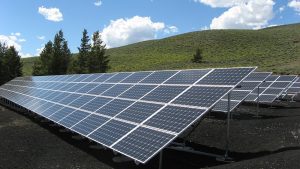3 item(s) were returned.
California is the second state after Hawaii to establish a 100% carbon-free energy goal for its electric grid. In late August, the state legislature passed Senate Bill 100 (SB 100) which created a 100% clean electricity standard by 2045 and also altered California’s current renewable portfolio standard (RPS). Previously, California’s RPS mandated 50% of the state’s retail electricity sales come from renewable sources by 2030, but following passage of SB 100, that figure is now modified to 60%. To achieve the 2045 goal, however, SB 100 takes a broader approach by explicitly instructing California’s energy agencies to “plan for 100%… [more]
View InsightResearch Manager
The Center for Growth and Opportunity at Utah State University
Renewable portfolio standards (RPS) require a certain percentage of the electricity sold by utilities to be from qualifying sources as determined by state statute. RPS are one of the most common state-level environmental policies; 29 states and Washington DC have mandatory standards. Despite their popularity, however, renewable portfolio standards may not achieve their environmental ends in a cost-effective manner. Basic analysis of the effects of implementing RPS shows only a nominal impact on carbon emissions, but a large impact on electricity prices. Professors at Louisiana State University compared states that had enacted RPS to states that had not, and showed… [more]
View InsightPolicy Associate
EESI
Although the administration’s finalized Clean Power Plan was released in early August, EPA is still actively grappling with the rules regarding biomass feedstocks as a compliance option under the Plan. Biomass (or biogenic) feedstocks include wastes such as organic wastes, lumber, pulp and paper industry wastes, agricultural residues and purpose-grown feedstocks. Solid biomass can be co-fired with coal in existing plants or used in renewable heating applications. The biomass industry argues that the utilization of biomass as an electricity source is an attractive option for states as it has the potential to sequester carbon as additional feedstocks are grown, it… [more]
View Insight

